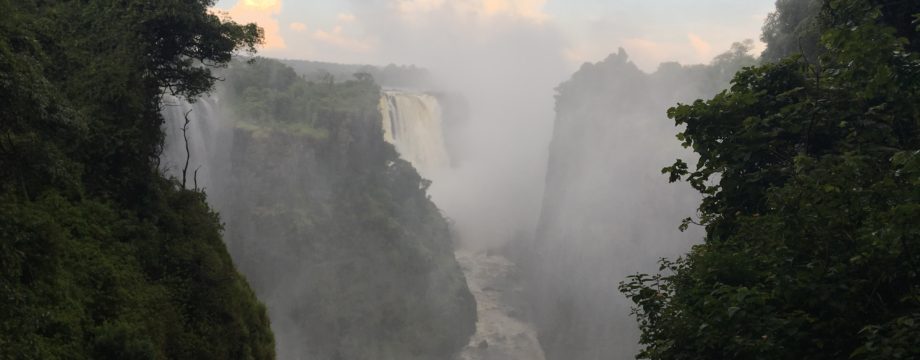This article was originally published on Cache Up NB. It has been mirrored here for archive purposes only.
When I was first introduced to geocaching, I was told about a regional geocaching website called the MGA. This was back in late 2007, early 2008. At the time, I was told that there was in fact two local regional sites and that, according to the person I spoke to at the time, I was better off to spend my time on the MGA vs anywhere else. It would become apparent later that this was merely one geocachers opinion as opposed to actual fact. Both sites had their merit but I was new and didn’t know much about any online geocaching communities. I didn’t know one from the other so I started hanging out on the MGA. At that time, the MGA was managed by FarsideX and served mainly as a chat and forum website for local geocachers.
At that time, it seemed pretty clear that there was an active online community of geocachers from the New Brunswick region who would participate in the local shoutbox, and forum posts. The site itself, and the content on the main page, was outdated even then, but the forums were quite active. As it turns out, when I finally did dig into the other site, the ACGA, I discovered that there was just as much activity in the forums over there as there was on the MGA. It just seemed that the participants were different. At the time, it seemed the MGA was participated mostly by folks from New Brunswick where the ACGA was mostly Nova Scotia geocachers. There was some cross activity but by far and large it seemed that one was mainly NB and the other was mainly NS. Regardless of their differences, both communities provided their own unique spin on interacting with other geocachers from our region. This gave locals more than one option on how they wanted to interact with other geocachers from Atlantic Canada.
Regardless of whatever history the two “associations” had, they both filled a need that the local geocaching community embraced. The need to share their experiences with each other. Whether it be through casual conversations on chat, or through long continued forum posts on various geocaching subjects. Both provided a way outside of geocaching events, for locals to exchange ideas, and share opinions on a wide range of subjects. In fact, many geocachers would use the local forums as a way to organize group hikes, and other group activities that were outside of the main geocaching “events”.
For all regions, whether they be from Canada, the US, or other countries, it seems that geocachers all want to connect with other geocachers. Even if it’s purely a user who lurks and never posts or comments, they continue to feel connected in some fashion to other geocachers through these online communities. A simple Google search on a state or province and the term geocaching typically results in at least a few hits for that region. Usually you’ll stumble upon a local or regional “association” that people are a member of. Membership typically consists nothing more than simply signing up for an account on the website. Others have you paying fees to help contribute to the local geocaching efforts. Regardless of the specifcs, for the longest time, we saw a trend of “associations” for pretty much every area in the world.
However in the last few years, there has been a dramatic shift in the way that people are communicating and interacting. I hate using the term “Social Media” because it has a tendency to be over-used by the press. It’s a term that has become extremely popular to describe sites like Facebook and Twitter which people now use in droves to communicate with each other. However social media has always including things like blogs, forums, and other traditional “web” based communication tools. It’s just that Facebook sort of overtook a lot of that in a big way. In that regard, it’s had an interesting affect on geocaching communities.
A couple of years ago, someone started the Fredericton Region Geocachers group on Facebook. Since Facebook by it’s very nature was about sharing interests and hobbies, it was inevitable that someone would eventually create geocaching groups on there. In no time flat, it seemed that this one group seemed to grow. As many of you have no doubt discovered, in the last few years, Fredericton has become it’s own force to be reckoned with when it comes to geocaching. When I started caching, there wasn’t much in the way of geocaches in Fredericton. But now, it’s exploded and has become one of the busiest and most active caching cities in New Brunswick.
So that being said, if you’ve ever looked at their Facebook group, it is also very active. Yes, there are other FB groups for other parts of New Brunswick (and other parts of the world as well), but for our region, the Fredericton one definitely sees the most traffic. In researching other areas of the United States for local geocaching associations, I encountered many other areas where local associations have been abandoned in favour of using Facebook as their main place of collaboration. No forums or chat. Just a regular old Facebook group where the same people hang out and share ideas and thoughts.
The Fredericton Facebook group is a prime example of this. Here’s a group of passionate geocachers who have embraced the “new media” of something like Facebook, and used it as a way to collaborate and communicate with other geocachers in their region. Yes, many of those same folks participate in other geocaching communities in our region, including the previously mentioned associations and Cache Up NB. But by far and large, that group tends to spend most of it’s online geocaching time interacting through Facebook instead of a traditional forum/association website.
It’s this transformation that I find quite interesting. The typical model of geocaching association websites seems to be struggling to stay alive. Most of these association based websites follow the same sort of model. Put up a main page with a bunch of articles, and rely purely on the forums as a way for people to share ideas. Some of these sites do a good job of keeping their main content active and it prevents the site from looking stale. Many other sites prefer to keep the main page less active, and reserve all the conversation and news to the forums. Just Google other geocaching associations in Canada and the US and you’ll see plenty of examples of this. However more and more, you are starting to see geocaching communities shift away from the traditional main page/forum concept, to something completely different. For many of those, it’s closing the site down and shifting to things like Facebook where many geocachers, and other regular people, are spending their online time.
It seems in this day and age where many other alternative ways to communicate online now exist, the traditional geocaching website is seeing a serious decline in participation and interaction. In places like Ontario, there are as many as nine regional geocaching “associations”. Some of these struggle greatly to remain active as many of the folks who once served as the most active participants in the “association” have now moved to using groups on Facebook, or other means to interact with locals, instead of a traditional association website. In some places, the traditional association/forum style website continues to thrive, but more and more we are seeing a shift to other means of interaction.
This is actually the biggest reason why Cache Up NB was launched in the format that it currently lives in. Have you ever wondered why Cache Up NB has no forums? The biggest reason for not including a forum was that they had been done time and time again. It’s the 21st century and media is different now. Seeing other sites switch to things like Facebook made it clear that the conventional geocaching community was not going to last if it remained the same as everything used to be. So, we modeled Cache Up NB off something completely different; Slashdot. A news site that has been around for ages and has built a very substantial community of users through it’s comment posters and news submitters. A different model for a geocaching website than folks were used to seeing, but based on the amount of comments and visitors we see every day, it appears to be a model that is working.
It’s not to say that the traditional online geocaching communities are going to disappear as I do not see this happening at least for awhile. There will always be those who prefer a more traditional means of communicating online. And for those individuals, there will always be places they can go to interact. The question really becomes about how many of those traditional websites will continue to thrive as technology changes.
With new media formats coming out on a regular basis, and new ways of geocachers to interact being developed all the time, the future of the online geocaching community is both up in the air and certain all at the same time. It’s certain to say that geocachers will always find a way to interact online whether it be through a forum, a chat box, comments, Facebook, or some other mechanism which has yet to be developed. What I think is up in the air is what the wave of the future will be. With many geocaching communities opting for new media vs the old, the next few years will be interesting to watch and I am eager to see how it plays out.



5 Responses to The Transformation of Online Geocaching Communities